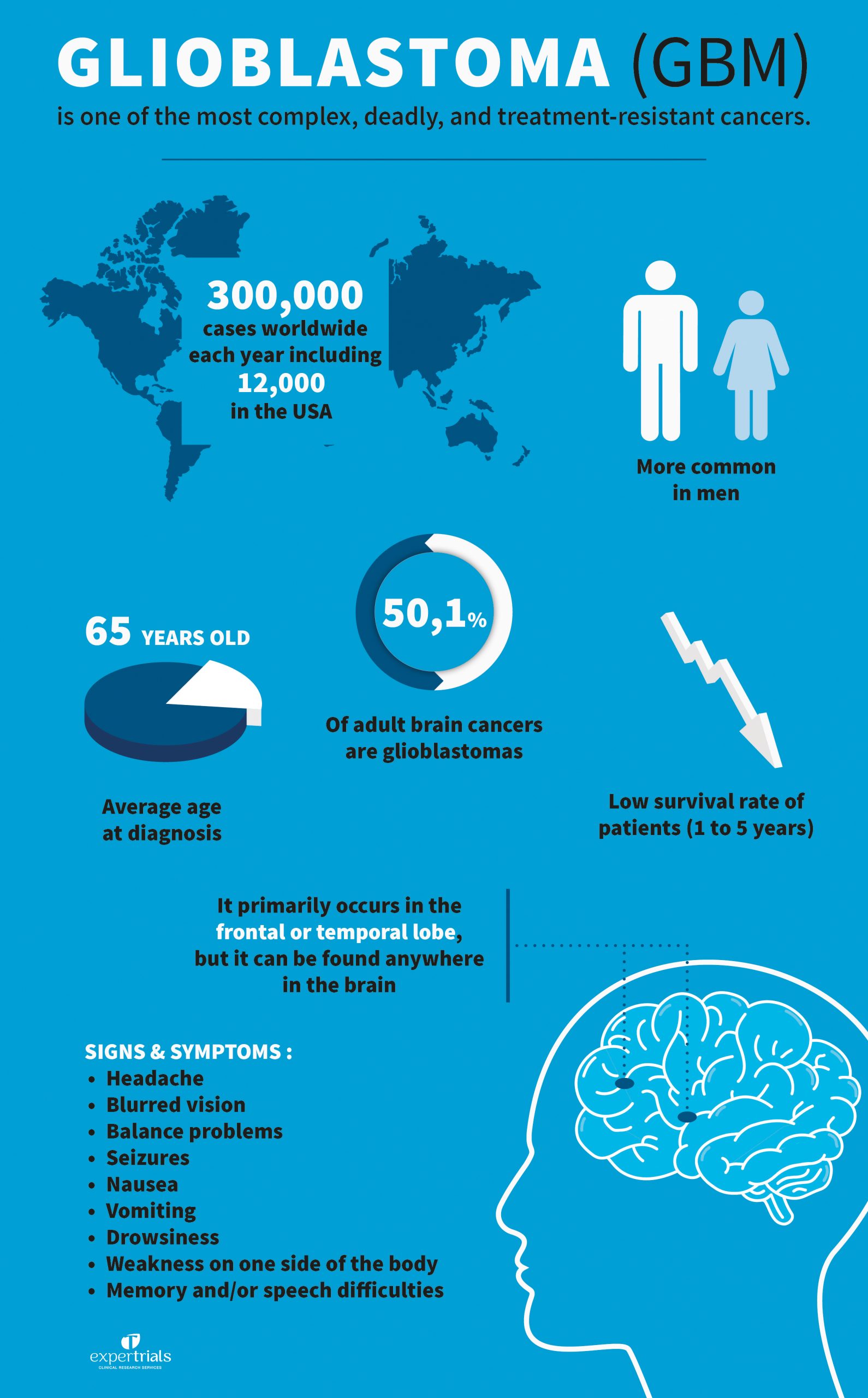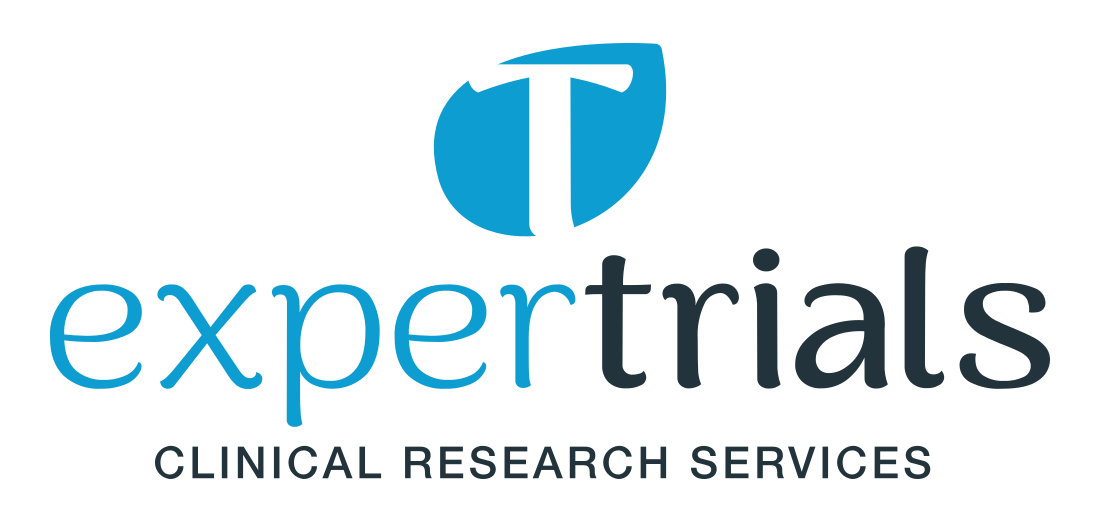Glioblastoma is the most common malignant primary brain tumor in adults. Every year globally, more than 300,000 cases of glioblastoma are diagnosed (around 12,000 cases in the United States). The understanding of its biology has made considerable progress. However, therapeutic advances have been minimal over the last two decades. Clinical trials have a crucial role to play in this debilitating disease, but face several challenges. In this blog post, we will enquire about that role and those challenges as well as tell you how ExperTrials has already played a part as a CRO doing GBM research.
The Role of Clinical Trials in Glioblastoma Research
Glioblastomas are grade IV brain tumors: they contain the most abnormal looking cells and are the most aggressive. They can start anywhere in the brain, but most commonly form in the frontal lobe and the temporal lobe. The clinical course and treatment of the disease are associated with neurocognitive disability.
Glioblastoma multiforme (GBM) is known for its poor prognosis. Despite decades of research, the survival rate for patients remains an average of 15 to 18 months after diagnosis, with just 7% alive after five years. That makes it a crucial public health issue.
The standard of care for GBM only postpones tumor progression, and most patients experience tumor recurrence just months after their first surgery. It is thus critical to improve patient outcomes. Clinical trials provide patients with access to innovative treatments that are not available through standard care, offering them hope of less tumor recurring.
The Current Landscape of GBM Clinical Trials
A multitude of Phase III trials have failed to meet their primary endpoints despite promising preclinical and early-phase programs. Therapeutic advances for GBM have been minimal over the last twenty years and the success rate of new investigational drug applications for brain cancer is only around 1%.
The challenges faced by clinical trials in GBM are numerous:
- The difficulty of delivering drugs to the brain due to the blood-brain barrier,
- The heterogeneity of the disease,
- The overly stringent clinical eligibility criteria,
- The limited development of prognostic and predictive biomarkers,
- The low enrollment of patients.
Concerns have also been raised recently regarding the need for improvement of the GBM clinical landscape. Two recent innovations in GBM clinical trial designs have taken place to improve the efficiency of drug discovery timelines:
- Early phase 0 and window of opportunity clinical trials for rapid identification of ineffective therapies,
- Adaptive designs in clinical trials for efficient, and ethical, study designs.
Consequently, the future clinical trials landscape in GBM will increasingly involve phase 0, window of opportunity, and adaptive phase I–III studies. A strong collaboration between physicians and biostatisticians will be critical for implementing these trial designs.

ExperTrials’s Role in GBM Research
In 2012 ExperTrials was contacted by an international medical device company to rescue (i.e. take over) an ongoing Phase III trial in newly diagnosed GBM involving 40 study sites in several European countries (Germany, Switzerland, France, Italy, Spain, amongst others) because they were dissatisfied with the services provided by the previous CRO.
Up until 2021, ExperTrials not only managed to bring this trial to a successful end, but further managed several additional PII/III trials for the same company in recurrent and newly diagnosed GBM and other solid tumor indications such as metastatic (brain mets) lung cancer, ovarian cancer, and prostate cancer with the same device.
Following the successful registration of this device for GBM in Europe and the USA, we have further managed post-marketing surveillance studies with this device in recurrent GBM. Two of these studies had been inspected by the FDA, and we were able to address all findings which finally led to successful registration of the device.
Our current management team has profound knowledge of and hands-on experience with the special regulatory environments for medical devices. We also have an extensive network of Key Opinion Leaders, investigators and potential study sites in Europe and the United States in Oncology, and more specifically in GBM.
